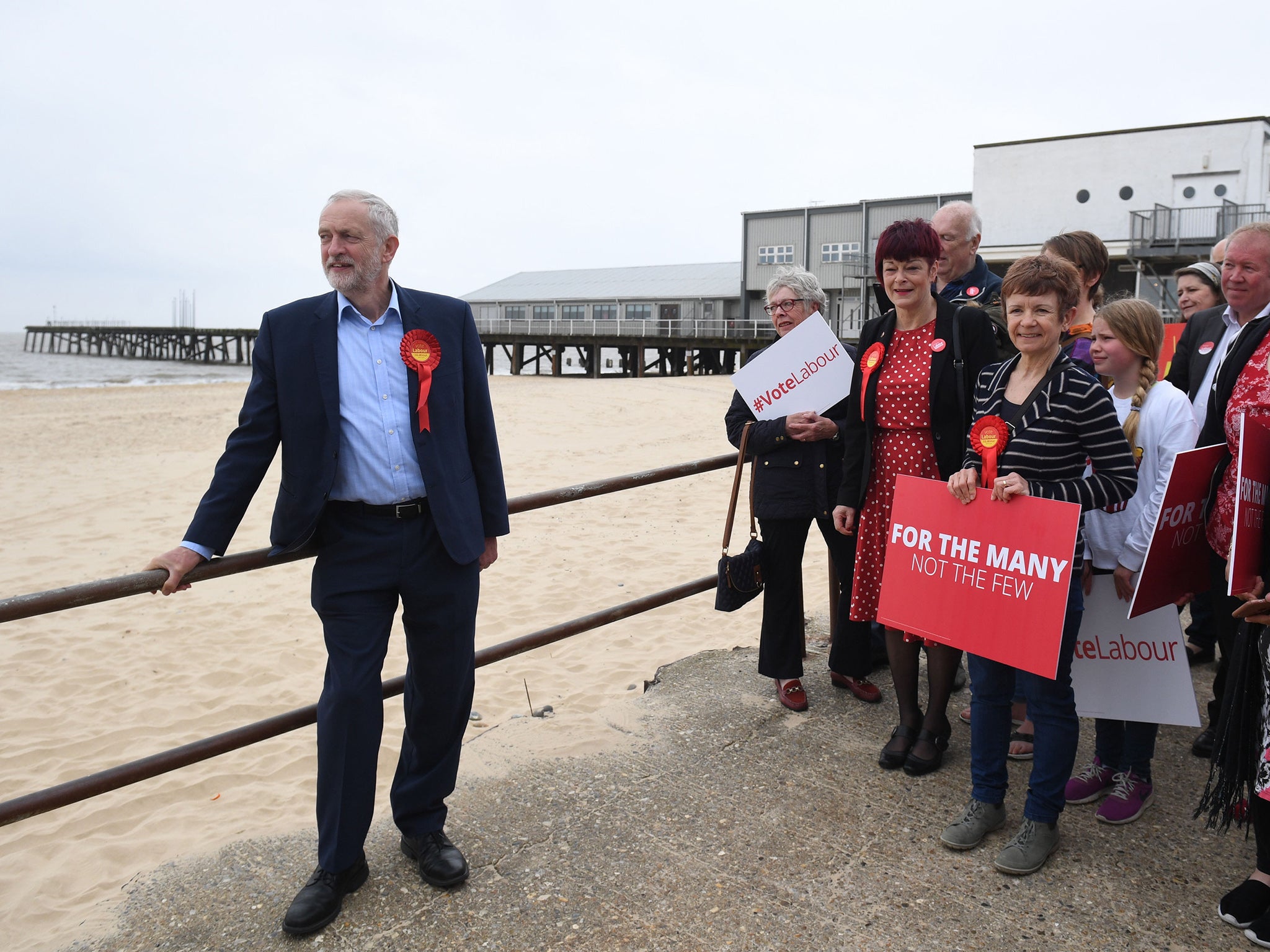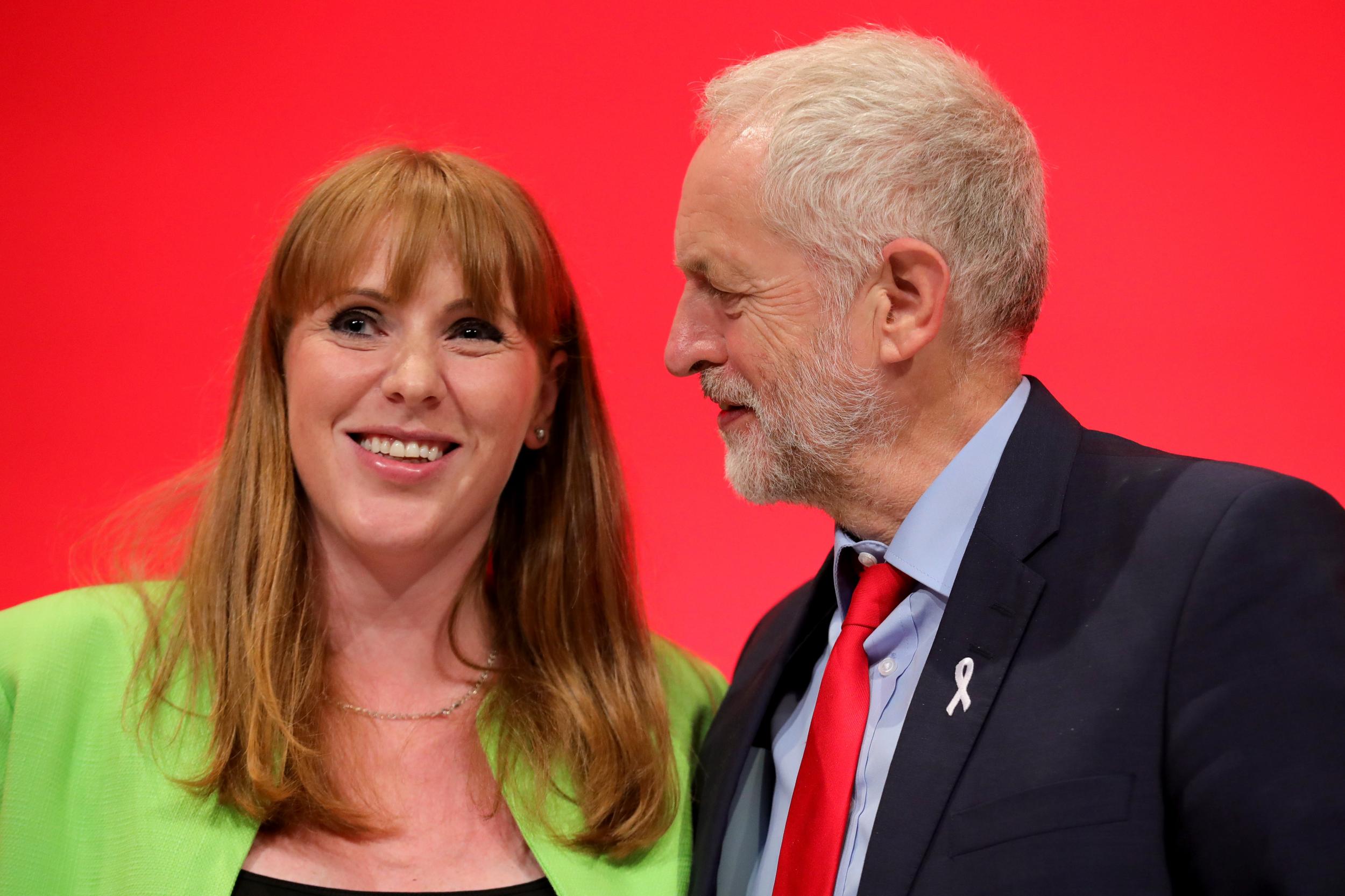The Independent's journalism is supported by our readers. When you purchase through links on our site, we may earn commission.
This election will mark the end of Labour's Corbyn era – but what will come next?
As Owen Smith learned the hard way last year, however, you cannot beat somebody with nobody


Your support helps us to tell the story
From reproductive rights to climate change to Big Tech, The Independent is on the ground when the story is developing. Whether it's investigating the financials of Elon Musk's pro-Trump PAC or producing our latest documentary, 'The A Word', which shines a light on the American women fighting for reproductive rights, we know how important it is to parse out the facts from the messaging.
At such a critical moment in US history, we need reporters on the ground. Your donation allows us to keep sending journalists to speak to both sides of the story.
The Independent is trusted by Americans across the entire political spectrum. And unlike many other quality news outlets, we choose not to lock Americans out of our reporting and analysis with paywalls. We believe quality journalism should be available to everyone, paid for by those who can afford it.
Your support makes all the difference.Two important things happened this week that may affect the outcome of the election. Not this election, of course. I mean the next one. The outcome of this election is not seriously in doubt. But some of the things that will decide the next one are being decided now.
First, when nominations for candidates closed at 4pm on Thursday, the Corbynites had succeeded in getting only one more of their number selected in a winnable seat: Laura Pidcock in Durham North West. This is not enough to get another Corbynite on the ballot in a Labour leadership election. They need 15 per cent of Labour MPs and MEPs to nominate a candidate. Although Corbynite MPs tend to be in safe seats – Corbynism can thrive only if it is well insulated from the views of swing voters – Labour would have to go below 25 per cent of the vote and 140 MPs for Rebecca Long-Bailey to reach the threshold. Bad as the election might be for Labour, I don’t think it is going to be that bad.
That is it for Long-Bailey, then. Like a queen bee, the shadow Business Secretary is being fed, protected and groomed by the worker bees of Momentum and John McDonnell, the shadow Chancellor. But she will not be a candidate next time round. Labour MPs are not going to make that mistake again, of nominating someone with whom they disagree for the sake of widening the debate.
If Momentum wants to keep the leadership, then, it must prevail on Jeremy Corbyn to stay on. As was established in court last year, as incumbent leader, he does not need nominations to stand again. We can ignore for the moment the talk of changing the rules: the so-called McDonnell amendment to reduce the threshold, to make it easier for another Corbynite to stand. I don’t think that rule change would get through Labour conference but it doesn’t matter anyway, because there will be a leadership election in September, before the rules can be changed. Several candidates will stand, whether Corbyn stays or goes.
Corbyn’s people insist privately that he will stay on even if Labour lose, but they have an interest in putting pressure on him to do so. He will be 68 later this month and, although his resilience and fight in this campaign has been impressive, we cannot know what he will do on 9 June. He plainly feels a strong sense of duty to the cause, but he is also human.
Even if he stays on, though, we are moving towards the end of the Corbynite experiment. After a big general election defeat, Corbyn can lose. Many of the 313,000 members and supporters who voted for him last year did so because they thought he hadn’t been given a fair chance. Many of them have been disillusioned by his incompetence and his support for Brexit, but what will really change attitudes is election defeat. He will have been given his chance, and even if they still believe in him, they will be discouraged by the failure of the voters to respect his mandate.
As Owen Smith learnt the hard way last year, however, you cannot beat somebody with nobody. So the all-important question – after “Will Corbyn stand?” – is who the other candidates would be. Yvette Cooper and Chuka Umunna will definitely stand, I am told. But I am not sure either of them can beat Corbyn. Corbyn supporters may be disillusioned with their leader on 9 June, but they still see Cooper and Umunna as Blairites and therefore worse than Tories. Cooper, 48, as chair of the Home Affairs select committee, has cut through with her plea for compassion for refugees. Her embryo leadership campaign is already running ads on Facebook. But she voted for the Iraq war, which is still important to large numbers of the Labour selectorate. Umunna, 38, is probably the best communicator, but people are reluctant to rally to him after he ducked out after a few days last time.
Of the rest on the bookmakers’ lists, Keir Starmer, 54, has not yet broken through. Clive Lewis, 45, has broken with Corbyn without gaining much support elsewhere (and may lose his seat). Dan Jarvis, 44, seems to have wandered off. And David Miliband, 51, failed to get himself a seat.
That leaves Lisa Nandy, 37, who was shadow Energy Secretary until last June. She has the “soft left” profile that could appeal to former Corbynites, but as far as I can tell, she isn’t interested in the leadership. If she decided to go for it, though, she would be in a strong position.

Which brings us to the other thing that happened this week. At the Labour manifesto meeting on Thursday, Angela Rayner, also 37, the shadow Education Secretary, clashed with McDonnell. She wanted less emphasis on the promise to phase out tuition fees, and more on early years education. This is important because she is right. Abolishing tuition fees is expensive and it is the wrong priority: a subsidy to people who will tend to be better off. But it is also significant because she is prepared to distance herself from the Corbyn-McDonnell leadership, to which she has been loyal.
Admittedly, Rayner had a terrible five minutes the day before, when Nick Ferrari of LBC asked her how many children aged five to seven are in classes larger than 30 – her main election pledge being to cut those class sizes. The answer is 500,000, but all she could say was that it is a “substantial number”. If she can learn from her mistake, though, she could be a formidable candidate. Her life story, leaving school at 16, single parent, care worker and union rep, is a parable of how a Labour government lifted up a working-class northerner.
I don’t know if she has all the qualities to be an effective leader, but the thing about election campaigns is that they are often a testing ground for throwing up unexpected talent. A colleague of mine put a bet on her to be the next leader at odds of 55/1 this week. That may be much less of an outside bet than it seems.
Join our commenting forum
Join thought-provoking conversations, follow other Independent readers and see their replies
Comments